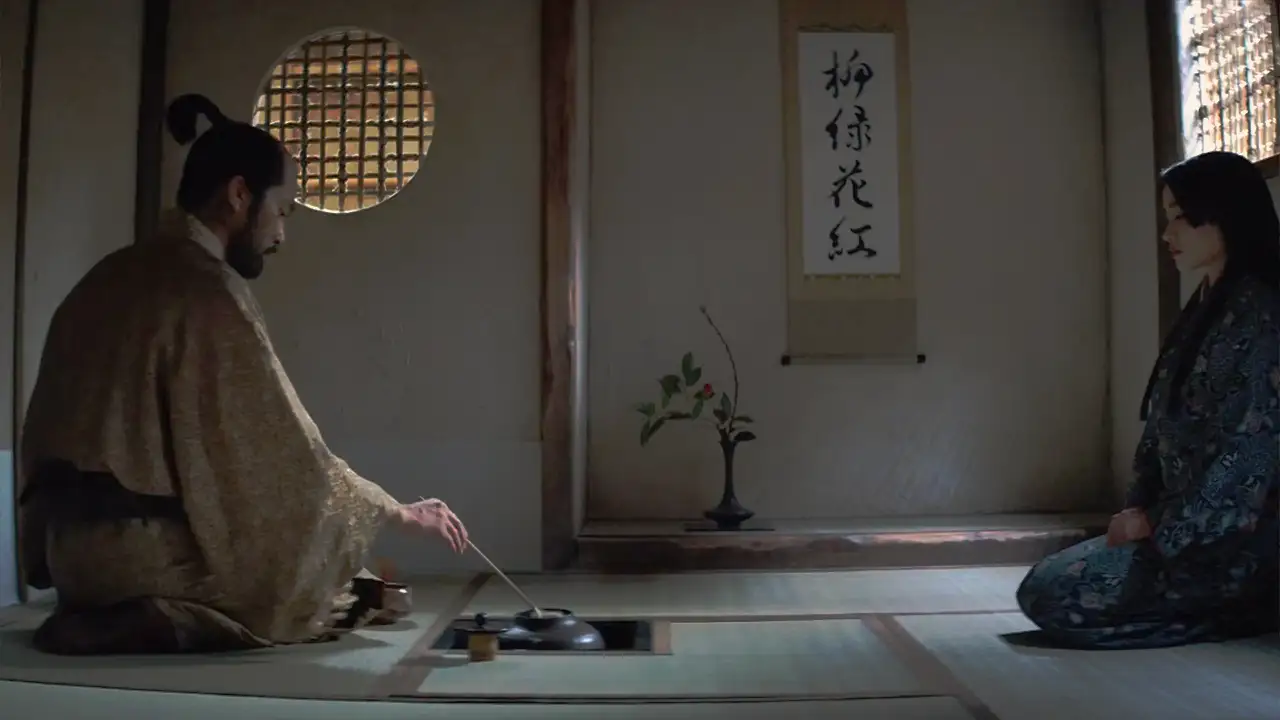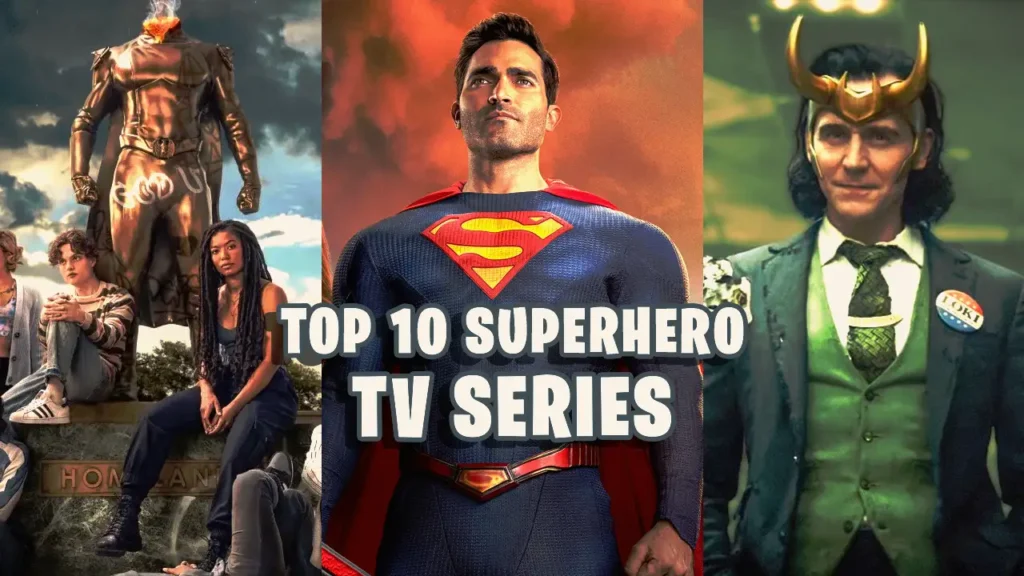Shogun TV Series: Review
Truly, modern entertainment is chock-full of surprises. I mean, most of them are the bad kind of surprises. Like that time, I went to a mate’s house after drinking 2 pints of brake fluid and personally took a dump in places that will leave him feeling confused for the rest of his natural life. But occasionally, the festering swamp of raw sewage that is modern Hollywood offers up little nuggets of quality entertainment, one of which just so happens to be “Shogun,” a historical drama set in 17th-century Japan that I could best describe as Game of Thrones but with samurai. And I mean the good Game of Thrones when it was still a smart, intriguing, and imaginative story about power, politics, and ambition, populated by a diverse cast of complex and well-written characters instead of friggin ‘BBQ time at the Danny Ranch. Anyway, I digress. Not being particularly familiar with the James Clavell novels that it’s based on or the 1980 adaptation, I didn’t really know what to expect going into it. But what the hell? I’d enjoyed “Blue Eye Samurai,” and I still had fond memories of playing “Ghost of Tsushima,” chopping up bamboo and composing haikus like an absolute boss. Plus, just about everyone I knew online and in the real world was singing its praises, so I figured I might as well dive in and see what all the fuss was about. And I’m very glad that I did because “Shogun” is a superb piece of entertainment, brilliantly written and directed, moodily evocative, perfectly paced, competently acted by a cast of experienced veterans and talented newcomers. It’s a show that uses universal themes of loyalty, duty, honor, and sacrifice to explore a very alien culture in a way that never comes across as preachy, self-righteous, or patronizing. Oh my goodness, I think I’m starting to remember this now. This is what good TV used to look like, isn’t it? This is what a faithful, intelligent adaptation of good source material can and should be. Unlike other shows I could mention anyway.

Table of Contents
TogglePlot Overview
The story’s told mostly from the point of view of John Blackthorne, an English navigator on a mission to establish trading links in Japan and break the stranglehold of the Portuguese who have been intentionally keeping Japanese society ignorant about the wider world and have designs to covertly take control of the government. Unfortunately, their supplies run out along the way, and the ship washes ashore with Blackthorn and a handful of survivors, all that remains of the crew. Pretty soon he’s taken captive and falls under the influence of Lord Toranaga, a powerful member of the Five Man Council that now runs the whole of Japan since the previous ruler died. Toranaga himself is caught up in a growing power struggle amongst the ruling Council, and it seems likely that war is on the way. But in Blackthorn, he might just have found a powerful ally because the man has access to guns and cannons that could turn the tide of the coming conflicts. The only question now is how to make use of him.
The more time Blackthorn spends amongst Toranaga’s people, the more he comes to understand Japanese culture and society and begins to unmask a tangled web of alliances, conspiracies, betrayals, and secrets that threaten to change the face of the country forever.
Characters and Performances
Now, I’m not going to go into too much detail on the plot because honestly, I don’t want to spoil it for anyone. What I will say is that I was extremely impressed with how the show manages to find that sweet spot of narrative depth and complexity without getting bogged down by it. There’s enough different characters, factions, and conflicting goals and motivations to keep you guessing about what might happen next, but this script never overloads you with so much shit to keep track of that you forget what’s happening and why. The show takes its time introducing the main players and giving you a decent insight into who they are and what they value before turning them loose and letting the sparks fly. And our little window into this alien world is Blackthorn himself, the classic outside protagonist looking in, who asks the questions the audience would ask and gets the explanations they need to understand the world he’s a part of. Now. It’s a trope that’s been done a million times before in stories like this, but there’s a very good reason for that. It’s effective, and credit to the writers here. They successfully avoid the shitty modern trope of making him just another arrogant white man who needs to be humbled and beaten over the head with his own bigotry. In reality, he’s a smart and resourceful man who learns fast, can turn situations to his advantage, and is willing to risk his life for others. And the more you learn about him, the more you begin to understand that he’s a complex man, driven by far more than simple greed and ambition. And he’s perfectly balanced out by Tora, not played by the Always in Hiroyuki Sonada. Toranaga is a man torn between duty and survival, surrounded by political rivals and traitors and trying to walk a dangerous path towards a better future for his country and his people. At first, he sees Blackthorn as just a simple tool to be used, but the more time he spends with him, the more he comes to understand and respect the man beneath.

Two guys from vastly different cultures with completely different worldviews, slowly finding common ground through shared adversity and challenges without having to demonize one and elevate the other. Imagine that in 2024. The third aspect of this dynamic is Mariko, a young highborn woman with strong loyalty towards Toranaga but religious sympathies towards the Portuguese who acts as an interpreter for Blackthorn and grows close to him as a result. She’s intelligent and cool under pressure, but again, the script never devolves into the tedious tropes of modern writing by turning her into an arrogant, abrasive girl boss who only exists to be better than him at everything. Oh my goodness. It’s almost like this show was written by mature, well-adjusted adults who understand human behavior.
Cinematography and Production Design
I also have to give massive props to the production design and cinematography here. Japan of the early 17th century is depicted on screen in glorious detail, from humble fishing villages in the early morning mist to towering fortresses and bustling but well-ordered cities that actually feel real and lived in.

Even simple little moments, like people pouring tea and staring pensively over perfectly manicured gardens and peaceful forests, look absolutely gorgeous. God damn it, why does 17th-century Japan look so much cooler and more sophisticated than all the clutter and chaos we have today? Unlike so many other shows, you never get the sense that you’re looking at an obvious set built on a soundstage that totally takes you out of the experience. And truly, what an experience it is, capturing that fascinating combination of strict tradition that governs every word and movement, the slavish pursuit of perfection where even simple morning meals are treated like works of art, and the merciless enforcement of respect and authority where a single insult can mean death. The point is that the world of “Shogun” feels real and believable. The battle and action sequences are well-staged and suitably gory, and it all gives the impression of a big-budget production that had a lot of time and
care and thought put into it. A show that values quality, accuracy, and authenticity over the message, whose main focus is telling a good story rather than pushing tedious 2024 activism.
It’s a show that I’ve had an absolute blast watching so far, and to be honest, I think you will too. So for that reason, it gets a hearty recommendation from me.





